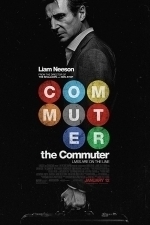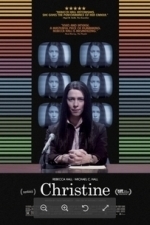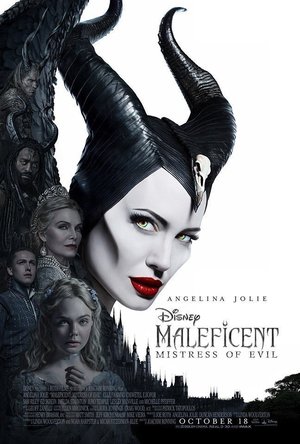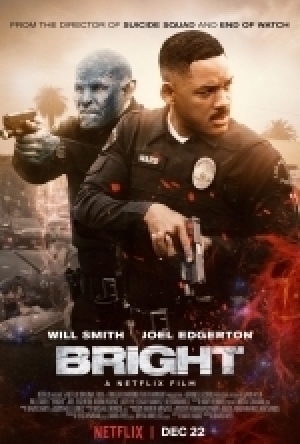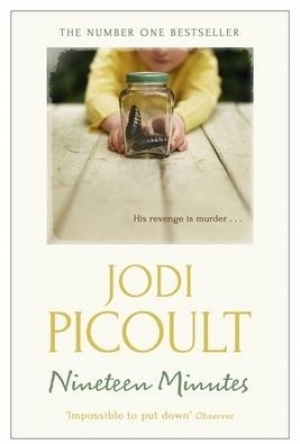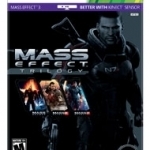Search
Search results

Baby Outdoor Adventures - Care, Play & Have Fun Outside
Games and Entertainment
App
~~> It’s outdoor adventure time! Join these adorable babies at this fun-filled outdoor camp! ~~>...

Afrikaans ABC Flashcards (with audio)
Education
App
* * * 50% off, limited time offer. Only 99c * * * Afrikaans ABC Flashcards (with audio) is a fun...
Bob Mann (459 KP) rated The Commuter (2018) in Movies
Sep 29, 2021
“This train is freaking me out”.
“The Commuter” is not a good film. You know that I’m not a prude about action films: “Die Hard” is one of my all time favourites and I even gave this actor/director combo’s previous outing – “Non-Stop” – a rather generous three Fads. But like many of my commutes, this is a hundred minutes of life that I won’t get back again.
Liam Neeson (“A Monster Calls“, “Taken 3“) plays Michael MacCauley an insurance salesman (no, I’m not making it up) who of course used to be a police officer with a certain set of skills. With advancing years, a couple of mortgages to keep up and a son about to go to college, he is financially rather exposed.
“Give me a sausage roll off the trolley…. NOW damn it”.
When a bad day turns worse, the commuting MacCauley is approached by a mysterious woman (Vera Farmiga, “The Judge“, “Up In The Air”) who offers him a financial bail-out for doing “just one small thing”. No, it’s not for sex in the toilet… it’s to use his familiarity with the train and its normal passengers to find the person that ‘doesn’t fit there’. For there is a lot at stake and MacCauley is drawn into a perilous game where his own life and the lives of his son and wife Karen (Elizabeth McGovern, “Downton Abbey”) are put at risk.
Vera Farmiga has a proposition for Liam Neeson.
What the inexperienced writers (Byron Willinger, Philip de Blasi and Ryan Engle (“Non-stop”)) were clearly shooting for was a Hitchcockian “ordinary man in deep-water” style flick of the James Stewart “North by Northwest” variety…. but they really miss this by a mile. With the 65 year old Liam Neeson – here playing 60 – performing acrobatics on, under and across an express train, belief is not just suspended – it is hung drawn and quartered! The action is just ludicrously unrealistic.
Unfortunately, Neeson – although still looking remarkably good for his advanced years – is increasingly is starting to look like Roger Moore in “A View to a Kill”: its time to hang up the ‘action hero’ coat and focus on more character acting pieces (this was the man who gave us Oskar Schindler after all).
A chain defies all the laws of physics… train guard Colin McFarlane tries to help Neeson avoid disaster. A green screen is obviously not evident!
The plot also has more holes than a moth-eaten jumper. Omnipotence of the villains is evident, but never explained, and while they are fiendishly clever in some aspects they are face-palmingly stupid about others. (No spoilers, but the threat to MacCauley’s family is mind-numbingly foilable).
It was fairly obvious that Obi Wan Kenobi was out of place on the train. No.. of course not… this was just MacCauley’s commuting pal Walt (Jonathan Banks)
A ‘major event’ at the end of reel two (if you’ve seen the spoilerish trailer you’ll know what this is) leads – notably without any ‘consequence’ – into a completely ridiculous final reel that beggars belief. It also includes a “twist” so obvious that the writers must have assumed an IQ of sub-50.
What’s the great Sam Neill (“Jurassic Park”) doing in this mess?
This is a film that melds “Taken”, “Non-stop”, “Unstoppable”, “Strangers on a Train” and – most bizarrely and cringe-worthily – “Spartacus” to create a cinematic mess of supreme proportions. I put director Jaume Collet-Serra’s last film – “The Shallows” – into my Top 10 films of 2016. He’ll be lucky if this one doesn’t make my “Turkeys of the Year” list for 2018.
Avoid!
Liam Neeson (“A Monster Calls“, “Taken 3“) plays Michael MacCauley an insurance salesman (no, I’m not making it up) who of course used to be a police officer with a certain set of skills. With advancing years, a couple of mortgages to keep up and a son about to go to college, he is financially rather exposed.
“Give me a sausage roll off the trolley…. NOW damn it”.
When a bad day turns worse, the commuting MacCauley is approached by a mysterious woman (Vera Farmiga, “The Judge“, “Up In The Air”) who offers him a financial bail-out for doing “just one small thing”. No, it’s not for sex in the toilet… it’s to use his familiarity with the train and its normal passengers to find the person that ‘doesn’t fit there’. For there is a lot at stake and MacCauley is drawn into a perilous game where his own life and the lives of his son and wife Karen (Elizabeth McGovern, “Downton Abbey”) are put at risk.
Vera Farmiga has a proposition for Liam Neeson.
What the inexperienced writers (Byron Willinger, Philip de Blasi and Ryan Engle (“Non-stop”)) were clearly shooting for was a Hitchcockian “ordinary man in deep-water” style flick of the James Stewart “North by Northwest” variety…. but they really miss this by a mile. With the 65 year old Liam Neeson – here playing 60 – performing acrobatics on, under and across an express train, belief is not just suspended – it is hung drawn and quartered! The action is just ludicrously unrealistic.
Unfortunately, Neeson – although still looking remarkably good for his advanced years – is increasingly is starting to look like Roger Moore in “A View to a Kill”: its time to hang up the ‘action hero’ coat and focus on more character acting pieces (this was the man who gave us Oskar Schindler after all).
A chain defies all the laws of physics… train guard Colin McFarlane tries to help Neeson avoid disaster. A green screen is obviously not evident!
The plot also has more holes than a moth-eaten jumper. Omnipotence of the villains is evident, but never explained, and while they are fiendishly clever in some aspects they are face-palmingly stupid about others. (No spoilers, but the threat to MacCauley’s family is mind-numbingly foilable).
It was fairly obvious that Obi Wan Kenobi was out of place on the train. No.. of course not… this was just MacCauley’s commuting pal Walt (Jonathan Banks)
A ‘major event’ at the end of reel two (if you’ve seen the spoilerish trailer you’ll know what this is) leads – notably without any ‘consequence’ – into a completely ridiculous final reel that beggars belief. It also includes a “twist” so obvious that the writers must have assumed an IQ of sub-50.
What’s the great Sam Neill (“Jurassic Park”) doing in this mess?
This is a film that melds “Taken”, “Non-stop”, “Unstoppable”, “Strangers on a Train” and – most bizarrely and cringe-worthily – “Spartacus” to create a cinematic mess of supreme proportions. I put director Jaume Collet-Serra’s last film – “The Shallows” – into my Top 10 films of 2016. He’ll be lucky if this one doesn’t make my “Turkeys of the Year” list for 2018.
Avoid!
Bob Mann (459 KP) rated Christine (2016) in Movies
Sep 29, 2021
If it bleeds, it leads.
Life is precious. Bad times always get good again eventually. Winter turns to spring and you feel the warmth of the sun on your face again. So what drives someone – anyone – to the point of despair sufficient for them to ignore all of the potential upturns and to take their own life?
Christine tells the tragic tale of Florida TV news reporter Christine Chubbuck who committed suicide live on air in 1974. Yes, this is a spoiler, but since most people have some sense of what a film is about before they go to see it, it’s not really a big one. And I think in this case, knowing the outcome is pretty essential since otherwise you will likely spend 2 hours getting increasingly irritated by the erratic behaviour of the lead character and may possibly turn it off. With this movie, the telling is in the journey – not the destination.
London-born Rebecca Hall (“The Town”) plays the 30 year old virgin Christine; a damaged article with past mental issues, she has been moved by her mother Peg (J Smith-Cameron) from Boston to Florida to make a fresh start. But the station is struggling and Christine’s insistence on pursuing dull but worthy stories, such as zoning disputes, isn’t helping: she is driving her boss (Tracy Letts) to distraction. Despite her spiky demeanour and unapproachable nature, her colleagues including Jean (Maria Dizzia), the show’s anchor (and potential deflowerer) George (Michael C Hall) and weatherman Steve (Timothy Simons from “Veep”) all do their best to support her. It is part of the true tragedy of the piece that her downward spiral continues despite their best efforts.
Hall is outstanding in the role. She portrays the crazily compulsive behaviour of Chubbuck extremely well: perfectionism gone wild as she attempts to edit out 3 seconds off a clip while the film is already in the machine. At times the other-worldliness and creepiness of her character become extremely unsettling; an excruciating scene with a married couple in a bar being a case in point. Overall it’s an extremely thoughtful portrayal that is as quiet and unassuming as Ruth Negga’s in “Loving” (but without the smiles or the charm). I would like to think that after the Oscars team picked the ‘obvious contenders’ of Portman, Stone and Huppert, and with a place ‘reserved’ for Streep, they were left with Negga and Hall and had a “dammit, we can only pick 1 out of 2 here” moment.
Letts as the crotchety station chief also delivers a fine performance, and it’s a shame that the script never gave us the chance to see his post-shooting reactions, since the ‘if only’ ramifications for him in particular must have been huge.
In retrospect, Chubbuck’s actions were bizarre: taking her life in such a public way (and insisting the show be recorded for her “reels”) strikes of narcissism and a bitter revenge. While the film is no doubt based on the true recollections of the real-life participants, the screenplay by Craig Shilowich, in an impressive writing debut, for me never quite closed that loop: why this way rather that a car and a hosepipe?
Directed by Antonio Campos, this is never an easy watch. It’s a bit like watching a car crash in ultra-slow motion, and pretty much mandates that you watch an episode of “Father Ted” afterwards to cheer yourself up! But it’s a fascinating study in mental decline, and it’s a useful reminder that it behoves all of us to pay more attention to others around us and reach out with real help if needed before the worst can happen.
Christine tells the tragic tale of Florida TV news reporter Christine Chubbuck who committed suicide live on air in 1974. Yes, this is a spoiler, but since most people have some sense of what a film is about before they go to see it, it’s not really a big one. And I think in this case, knowing the outcome is pretty essential since otherwise you will likely spend 2 hours getting increasingly irritated by the erratic behaviour of the lead character and may possibly turn it off. With this movie, the telling is in the journey – not the destination.
London-born Rebecca Hall (“The Town”) plays the 30 year old virgin Christine; a damaged article with past mental issues, she has been moved by her mother Peg (J Smith-Cameron) from Boston to Florida to make a fresh start. But the station is struggling and Christine’s insistence on pursuing dull but worthy stories, such as zoning disputes, isn’t helping: she is driving her boss (Tracy Letts) to distraction. Despite her spiky demeanour and unapproachable nature, her colleagues including Jean (Maria Dizzia), the show’s anchor (and potential deflowerer) George (Michael C Hall) and weatherman Steve (Timothy Simons from “Veep”) all do their best to support her. It is part of the true tragedy of the piece that her downward spiral continues despite their best efforts.
Hall is outstanding in the role. She portrays the crazily compulsive behaviour of Chubbuck extremely well: perfectionism gone wild as she attempts to edit out 3 seconds off a clip while the film is already in the machine. At times the other-worldliness and creepiness of her character become extremely unsettling; an excruciating scene with a married couple in a bar being a case in point. Overall it’s an extremely thoughtful portrayal that is as quiet and unassuming as Ruth Negga’s in “Loving” (but without the smiles or the charm). I would like to think that after the Oscars team picked the ‘obvious contenders’ of Portman, Stone and Huppert, and with a place ‘reserved’ for Streep, they were left with Negga and Hall and had a “dammit, we can only pick 1 out of 2 here” moment.
Letts as the crotchety station chief also delivers a fine performance, and it’s a shame that the script never gave us the chance to see his post-shooting reactions, since the ‘if only’ ramifications for him in particular must have been huge.
In retrospect, Chubbuck’s actions were bizarre: taking her life in such a public way (and insisting the show be recorded for her “reels”) strikes of narcissism and a bitter revenge. While the film is no doubt based on the true recollections of the real-life participants, the screenplay by Craig Shilowich, in an impressive writing debut, for me never quite closed that loop: why this way rather that a car and a hosepipe?
Directed by Antonio Campos, this is never an easy watch. It’s a bit like watching a car crash in ultra-slow motion, and pretty much mandates that you watch an episode of “Father Ted” afterwards to cheer yourself up! But it’s a fascinating study in mental decline, and it’s a useful reminder that it behoves all of us to pay more attention to others around us and reach out with real help if needed before the worst can happen.
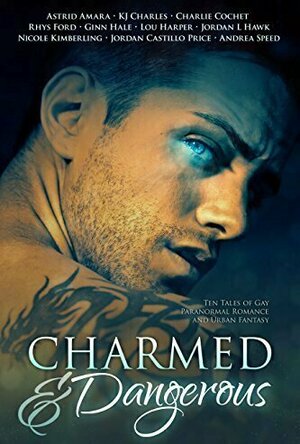
Charmed & Dangerous
Book
Magic takes many forms. From malignant hexes to love charms gone amok, you’ll find a vast array of...
Urban Fantasy Paranormal MM Romance
Charlie Cobra Reviews (1840 KP) rated Maleficent: Mistress of Evil (2019) in Movies
Jul 7, 2020
Impressive Cast & Visuals Are Not Enough When Compared To The First Film's Magical Story
Contains spoilers, click to show
The beginning started off strong for this movie and it immediately reminded me of what i liked about the first one. Angelina Jolie is just magnificent as Maleficent and you can tell she really enjoys acting the part. I didn't really understand why the people feared her is she wasn't a bad guy (which was the point of the first one I thought, showing the story from her side), but apparently the Queen was spreading rumors or stories to make people frightened. At the dinner scene it was quite believable from Maleficent's outburst that she might have done something to the King but to me it was too out of character that Aurora would believe her to do something like that. Also it was too Deus Ex Machina for another Fey, Connall to have been around close enough for him to save Maleficent when she is shot by an iron bullet. I really liked the scene where they fly around the underground caverns where the other Fey live and show the different biomes and talk about her unknown heritage. It bothered me that the Queen had that little fairy guy that was doing the experiments for her on his own people and how that stuff could kill him too, but what bothered me more was that it never showed his motivations when he released the little creatures in the dungeon. It just showed him do it and never said why or what changed his mind, I feel like there might have been a scene cut there or something. And then there was a couple of ridiculous scenes for me that almost killed this movie for me. One was that all the fairy creatures were invited to the wedding, which was obviously a trap with the red powder already being hinted at, but the fact that the people didn't make as much a deal about it like they did when Maleficent came to dinner surprised me. I mean they had guards holding back the citizens but when Maleficent appeared they ran away, wouldn't they have acted similarly if there were monsters coming to their kingdom. The attack by the Dark Fey on the castle was also one of those parts that made me wonder what the hell was going on. They are massacred on a big scale by the red powder which earlier in the film, it said that it was hard to make or took a long time, but they had butt loads of it in this battle. They had so much that when the Dark Fey retreat and change where they attack the humans even had traps setup in those areas as well. I mean it made for an interesting intense battle scene but Maleficent was the only one of her kind the humans had ever seen and only the Queen's servant said she saw one similar to her save her from the water. How did they know an army was coming and attacking by air. Good planning, smart Queen I guess. I was greatly disappointed that Maleficent didn't turn into a dragon like the cartoon. I love seeing a good dragon on screen but I guess the Phoenix was a good change and fit more with the story especially with her sacrifice. Phoenix's are reborn from their ashes as it says. The last part I found to be laughable was that when the battle is over Aurora is like, "Weddings back on". Her and the Prince are like, we will live in peace from now on with the Moors. Ok, you were just killing each other a couple of minutes ago, and so many Dark Fey died it wasn't even funny. Oh yeah, this movie also did quite a great job of hiding any blood whatsoever in a lot of scenes where there probably should have been some maybe a little. I mean Maleficent gets shot, Connall gets shot up like swiss-cheese, and the soldiers are shooting in the final battle and everyone has weapons like axes, swords, etc..
The beginning started off strong for this movie and it immediately reminded me of what i liked about the first one. Angelina Jolie is just magnificent as Maleficent and you can tell she really enjoys acting the part. I didn't really understand why the people feared her is she wasn't a bad guy (which was the point of the first one I thought, showing the story from her side), but apparently the Queen was spreading rumors or stories to make people frightened. At the dinner scene it was quite believable from Maleficent's outburst that she might have done something to the King but to me it was too out of character that Aurora would believe her to do something like that. Also it was too Deus Ex Machina for another Fey, Connall to have been around close enough for him to save Maleficent when she is shot by an iron bullet. I really liked the scene where they fly around the underground caverns where the other Fey live and show the different biomes and talk about her unkown heritage. It bothered me that the Queen had that little fairy guy that was doing the experiments for her on his own people and how that stuff could kill him too, but what bothered me more was that it never showed his motivations when he released the little creatures in the dungeon. It just showed him do it and never said why or what changed his mind, I feel like there might have been a scene cut there or something. And then there was a couple of ridiculous scenes for me that almost killed this movie for me. One was that all the fairy creatures were invited to the wedding, which was obviously a trap with the red powder already being hinted at, but the fact that the people didn't make as much a deal about it like they did when Maleficent came to dinner surprised me. I mean they had guards holding back the citizens but when Maleficent appeared they ran away, wouldn't they have acted similarly if there were monsters coming to their kingdom. The attack by the Dark Fey on the castle was also one of those parts that made me wonder what the hell was going on. They are massacred on a big scale by the red powder which earlier in the film, it said that it was hard to make or took a long time, but they had butt loads of it in this battle. They had so much that when the Dark Fey retreat and change where they attack the humans even had traps setup in those areas as well. I mean it made for an interesting intense battle scene but Maleficent was the only one of her kind the humans had ever seen and only the Queen's servant said she saw one similar to her save her from the water. How did they know an army was coming and attacking by air. Good planning, smart Queen I guess. I was greatly disappointed that Maleficent didn't turn into a dragon like the cartoon. I love seeing a good dragon on screen but I guess the Phoenix was a good change and fit more with the story especially with her sacrifice. Phoenix's are reborn from their ashes as it says. The last part I found to be laughable was that when the battle is over Aurora is like, "Weddings back on". Her and the Prince are like, we will live in peace from now on with the Moors. Ok, you were just killing each other a couple of minutes ago, and so many Dark Fey died it wasn't even funny. Oh yeah, this movie also did quite a great job of hiding any blood whatsoever in a lot of scenes where there probably should have been some maybe a little. I mean Maleficent gets shot, Connall gets shot up like swiss-cheese, and the soldiers are shooting in the final battle and everyone has weapons like axes, swords, etc.. I really wanted to give this movie a 7 but I have to give it a 6/10.
The beginning started off strong for this movie and it immediately reminded me of what i liked about the first one. Angelina Jolie is just magnificent as Maleficent and you can tell she really enjoys acting the part. I didn't really understand why the people feared her is she wasn't a bad guy (which was the point of the first one I thought, showing the story from her side), but apparently the Queen was spreading rumors or stories to make people frightened. At the dinner scene it was quite believable from Maleficent's outburst that she might have done something to the King but to me it was too out of character that Aurora would believe her to do something like that. Also it was too Deus Ex Machina for another Fey, Connall to have been around close enough for him to save Maleficent when she is shot by an iron bullet. I really liked the scene where they fly around the underground caverns where the other Fey live and show the different biomes and talk about her unkown heritage. It bothered me that the Queen had that little fairy guy that was doing the experiments for her on his own people and how that stuff could kill him too, but what bothered me more was that it never showed his motivations when he released the little creatures in the dungeon. It just showed him do it and never said why or what changed his mind, I feel like there might have been a scene cut there or something. And then there was a couple of ridiculous scenes for me that almost killed this movie for me. One was that all the fairy creatures were invited to the wedding, which was obviously a trap with the red powder already being hinted at, but the fact that the people didn't make as much a deal about it like they did when Maleficent came to dinner surprised me. I mean they had guards holding back the citizens but when Maleficent appeared they ran away, wouldn't they have acted similarly if there were monsters coming to their kingdom. The attack by the Dark Fey on the castle was also one of those parts that made me wonder what the hell was going on. They are massacred on a big scale by the red powder which earlier in the film, it said that it was hard to make or took a long time, but they had butt loads of it in this battle. They had so much that when the Dark Fey retreat and change where they attack the humans even had traps setup in those areas as well. I mean it made for an interesting intense battle scene but Maleficent was the only one of her kind the humans had ever seen and only the Queen's servant said she saw one similar to her save her from the water. How did they know an army was coming and attacking by air. Good planning, smart Queen I guess. I was greatly disappointed that Maleficent didn't turn into a dragon like the cartoon. I love seeing a good dragon on screen but I guess the Phoenix was a good change and fit more with the story especially with her sacrifice. Phoenix's are reborn from their ashes as it says. The last part I found to be laughable was that when the battle is over Aurora is like, "Weddings back on". Her and the Prince are like, we will live in peace from now on with the Moors. Ok, you were just killing each other a couple of minutes ago, and so many Dark Fey died it wasn't even funny. Oh yeah, this movie also did quite a great job of hiding any blood whatsoever in a lot of scenes where there probably should have been some maybe a little. I mean Maleficent gets shot, Connall gets shot up like swiss-cheese, and the soldiers are shooting in the final battle and everyone has weapons like axes, swords, etc.. I really wanted to give this movie a 7 but I have to give it a 6/10.
DiscoStu (6 KP) rated Bright (2017) in Movies
Jan 8, 2018 (Updated Jan 8, 2018)
“A competent buddy cop movie that offers solid pacing and character portrayals at the expense of building up the films (admittedly) interesting universe”.
Contains spoilers, click to show
Netflix’s ‘Bright’, directed by David Ayer (Suicide Squad) and starring Will Smith and Joel Edgerton, brings the big budget box office trappings of a fully fledged cinema release to their home streaming subscription service and arguably the end result is a fun and enjoyable, if slightly flawed, buddy-cop-movie-with-a-twist that sets up a universe you’ll likely want to see more of.
Smith plays Daryl Ward, a weary veteran L.A. cop reluctantly partnered with orc partner Nick, the first and only orc to make the force in this alternate earth story. The film opens with Ward taking a round of buckshot from an orc thug whilst Nick looks on waiting for a burrito from a street vendor. The incident leaves a distrust between Ward and Nick, with Ward unsure whether his partner really has his back after Nick not only failed to step up and prevent the shooting but also failed to apprehend the orc perpetrator during the ensuing foot chase. Ward also finds himself at odds with other members of the force who don’t share the police’s ‘progressive’ attitudes of allowing orcs into the force.
The film briefly touches on a two thousand year old conflict between the nine armies and the Dark Lord who was defeated when various races allied to defeat him. In the established lore the orcs allied with the Dark Lord and have been subjugated ever since. The film attempts to portray the orcs through a social commentary that reflects the black community today and how heavy handed the film tackles the subject will probably depend on the viewer. For me it was handled sensitively enough without being too in your face.
The film sees the two protagonists dispatched to a disturbance that quickly escalates to a situation that goes from bad to worse. Finding themselves on the run with a Bright, the film’s titular white haired magic wielders, and a coveted magic wand Ward and Nick have to navigate hostile L.A. gang land environments whilst pursued by Inferni (the magic version of the Illuminati), the police and human and orc gangsters, all who have their own plans for the wand.
The film is shot well, with plenty of scenery that builds up the shared world of humans, orcs, elves , centaurs and the other races that we don’t get to spend any time with. A montage at the start of the film shows various L.A. scenery graffiti tagged with striking imagery depicting the struggle of orcs in an oppressed landscape. Evidently, orc lives matter. The film also doesn’t struggle for pacing. The two hour runtime services the story well enough, even if some of the world building and character exploration suffers as a result. I would have liked to have spent more time exploring the shared history of the various races and understanding the motivations of the stories’ villains but sadly these elements are undersold in favour of a shorter runtime that hurries the narrative along. To the credit of the writers and the director this world bares revisiting and at the time of writing it sounds like Netflix know this too with a sequel already greenlit.
Bright is a fun jaunt in a world I’d like to get to know better. Smith and Edgerton are strong leads who share a strong chemistry and make you care about their characters. The bad guys don’t fare as well here, especially disappointing given that Noomi Rapace is the lead antagonist but hopefully a sequel will correct some of these missteps. Bright feels like a £20 cinema ticket movie and gives enough to the viewer that you’ll want to discuss it with friends afterwards. As a film bundled with your Netflix subscription it’s hard to be too critical.
Smith plays Daryl Ward, a weary veteran L.A. cop reluctantly partnered with orc partner Nick, the first and only orc to make the force in this alternate earth story. The film opens with Ward taking a round of buckshot from an orc thug whilst Nick looks on waiting for a burrito from a street vendor. The incident leaves a distrust between Ward and Nick, with Ward unsure whether his partner really has his back after Nick not only failed to step up and prevent the shooting but also failed to apprehend the orc perpetrator during the ensuing foot chase. Ward also finds himself at odds with other members of the force who don’t share the police’s ‘progressive’ attitudes of allowing orcs into the force.
The film briefly touches on a two thousand year old conflict between the nine armies and the Dark Lord who was defeated when various races allied to defeat him. In the established lore the orcs allied with the Dark Lord and have been subjugated ever since. The film attempts to portray the orcs through a social commentary that reflects the black community today and how heavy handed the film tackles the subject will probably depend on the viewer. For me it was handled sensitively enough without being too in your face.
The film sees the two protagonists dispatched to a disturbance that quickly escalates to a situation that goes from bad to worse. Finding themselves on the run with a Bright, the film’s titular white haired magic wielders, and a coveted magic wand Ward and Nick have to navigate hostile L.A. gang land environments whilst pursued by Inferni (the magic version of the Illuminati), the police and human and orc gangsters, all who have their own plans for the wand.
The film is shot well, with plenty of scenery that builds up the shared world of humans, orcs, elves , centaurs and the other races that we don’t get to spend any time with. A montage at the start of the film shows various L.A. scenery graffiti tagged with striking imagery depicting the struggle of orcs in an oppressed landscape. Evidently, orc lives matter. The film also doesn’t struggle for pacing. The two hour runtime services the story well enough, even if some of the world building and character exploration suffers as a result. I would have liked to have spent more time exploring the shared history of the various races and understanding the motivations of the stories’ villains but sadly these elements are undersold in favour of a shorter runtime that hurries the narrative along. To the credit of the writers and the director this world bares revisiting and at the time of writing it sounds like Netflix know this too with a sequel already greenlit.
Bright is a fun jaunt in a world I’d like to get to know better. Smith and Edgerton are strong leads who share a strong chemistry and make you care about their characters. The bad guys don’t fare as well here, especially disappointing given that Noomi Rapace is the lead antagonist but hopefully a sequel will correct some of these missteps. Bright feels like a £20 cinema ticket movie and gives enough to the viewer that you’ll want to discuss it with friends afterwards. As a film bundled with your Netflix subscription it’s hard to be too critical.
Hazel (1853 KP) rated Nineteen Minutes in Books
May 25, 2017
Fantastic Author
Your son says the bullying was unbearable. But his revenge was murder. What would you do?
Nineteen Minutes is perhaps Jodi Picoult’s most controversial novel, as well as one of the longest. Lots of things can happen in nineteen minutes including a school shooting resulting in the deaths of ten people. This is what happens at the beginning of this book, leaving hundreds of teachers and students emotionally scarred for the remainder of their lives. Picoult explores the reactions of a community who’s ideas of safety have been shattered, the grief of the victims and their families and, perhaps most importantly, the heartache of the parents of the shooter.
Seventeen-year-old Peter Houghton has had enough of the bullying that he has endured throughout his entire school life. He has no friends, is constantly miserable, possibly suicidal, and so, on a typical morning in March 2007 he decides permanently fix the situation, unthinking of the consequences. But why did he go to such extremes? What circumstances in his life led to firing a gun as the only solution?
As the evidence is gathered in the lead up to the court trial, many key characters question their own involvement in Peter’s life. Firstly there is Josie Cormier, a straight-A student who swapped her childhood friendship with Peter for popularity and her boyfriend Matt, a particularly aggressive bully. Secondly there is Alex Cormier, Josie’s mother, who destroyed her friendship with Peter’s mother after finding their five-year-old children playing with guns in the Houghton’s basement.
If Peter’s father had never owned a selection of hunting rifles, would Peter ever have thought of guns as a way out of his predicament? On the other hand, Lacy Houghton blames herself for not noticing how badly her son was suffering, not just at school, but at home as well, where he had to live up to the memory of his saint-like older brother who died in a car crash the previous year.
Naturally a tragic event such as this changes people, however not always in a negative way. Relationships begin to blossom as characters realize how close they were to losing the ones they love. Alex takes a step back from her demanding job to comfort Josie in the aftermath, thus feeling closer to her than she ever has done before. Alex, a single mother, also opens herself up to a romantic relationship, something she has had no time to seriously consider up until now.
All the while, Defense Attorney Jordan McAfee, who some readers may remember from Salem Falls, fights a losing battle to get Peter acquitted, by arguing and prying into Peter’s emotions to discover his reason for committing murder.
What I like about Picoult’s novels is that there is a lot more to it than a simple storyline. While the story plays out and plot twists happen, the reader is learning something new. In Nineteen Minutes Picoult provides insight into midwifery, psychology and economics – things that are not synonymous with the shootings.
Readers will constantly question whose side of the story they are on. Hundreds of people grow up being bullied and will understand how Peter was feeling; yet they would not pick up a gun. Likewise, by putting themselves in the shoes of the victims readers will think about how they would feel in the same situation. However would anyone be willing to admit that they made someone else’s life a living hell? There is no simple conclusion to Nineteen Minutes; someone will always lose. Nevertheless, Picoult’s fantastic writing skills provide an enthralling story of love and loss.
I cannot recommend this book to readers in general due to the nature of the themes found in the story. Gun crime and school shootings are sadly still an occurrence in the present time, particularly in America, therefore there are thousands of people who have been affected by such an event, whether directly or indirectly as part of a local community. Some readers may find Nineteen Minutes challenging and upsetting, which is why I am not going to encourage everyone to read this book. However, Picoult has excelled herself with this novel and it would be a shame for people not to read it. Fans will not be disappointed with her writing and will love all her characters, possibly even Peter!
Nineteen Minutes is perhaps Jodi Picoult’s most controversial novel, as well as one of the longest. Lots of things can happen in nineteen minutes including a school shooting resulting in the deaths of ten people. This is what happens at the beginning of this book, leaving hundreds of teachers and students emotionally scarred for the remainder of their lives. Picoult explores the reactions of a community who’s ideas of safety have been shattered, the grief of the victims and their families and, perhaps most importantly, the heartache of the parents of the shooter.
Seventeen-year-old Peter Houghton has had enough of the bullying that he has endured throughout his entire school life. He has no friends, is constantly miserable, possibly suicidal, and so, on a typical morning in March 2007 he decides permanently fix the situation, unthinking of the consequences. But why did he go to such extremes? What circumstances in his life led to firing a gun as the only solution?
As the evidence is gathered in the lead up to the court trial, many key characters question their own involvement in Peter’s life. Firstly there is Josie Cormier, a straight-A student who swapped her childhood friendship with Peter for popularity and her boyfriend Matt, a particularly aggressive bully. Secondly there is Alex Cormier, Josie’s mother, who destroyed her friendship with Peter’s mother after finding their five-year-old children playing with guns in the Houghton’s basement.
If Peter’s father had never owned a selection of hunting rifles, would Peter ever have thought of guns as a way out of his predicament? On the other hand, Lacy Houghton blames herself for not noticing how badly her son was suffering, not just at school, but at home as well, where he had to live up to the memory of his saint-like older brother who died in a car crash the previous year.
Naturally a tragic event such as this changes people, however not always in a negative way. Relationships begin to blossom as characters realize how close they were to losing the ones they love. Alex takes a step back from her demanding job to comfort Josie in the aftermath, thus feeling closer to her than she ever has done before. Alex, a single mother, also opens herself up to a romantic relationship, something she has had no time to seriously consider up until now.
All the while, Defense Attorney Jordan McAfee, who some readers may remember from Salem Falls, fights a losing battle to get Peter acquitted, by arguing and prying into Peter’s emotions to discover his reason for committing murder.
What I like about Picoult’s novels is that there is a lot more to it than a simple storyline. While the story plays out and plot twists happen, the reader is learning something new. In Nineteen Minutes Picoult provides insight into midwifery, psychology and economics – things that are not synonymous with the shootings.
Readers will constantly question whose side of the story they are on. Hundreds of people grow up being bullied and will understand how Peter was feeling; yet they would not pick up a gun. Likewise, by putting themselves in the shoes of the victims readers will think about how they would feel in the same situation. However would anyone be willing to admit that they made someone else’s life a living hell? There is no simple conclusion to Nineteen Minutes; someone will always lose. Nevertheless, Picoult’s fantastic writing skills provide an enthralling story of love and loss.
I cannot recommend this book to readers in general due to the nature of the themes found in the story. Gun crime and school shootings are sadly still an occurrence in the present time, particularly in America, therefore there are thousands of people who have been affected by such an event, whether directly or indirectly as part of a local community. Some readers may find Nineteen Minutes challenging and upsetting, which is why I am not going to encourage everyone to read this book. However, Picoult has excelled herself with this novel and it would be a shame for people not to read it. Fans will not be disappointed with her writing and will love all her characters, possibly even Peter!
Daniel Boyd (1066 KP) rated Mass Effect Trilogy in Video Games
Jul 25, 2017
An Example Of Why Dialogue Options In Video Games Are More Trouble Than They Are Worth
The first Mass Effect game was released 10 years ago this year and it pioneered many RPG mechanics that are still being used in RPG’s today. Like any pioneer, it spawned many clones that tried to emulate the cover based shooting mechanics that the game used, the romance situations that took place between the characters and the infamous dialogue options that the player could choose from during conversation cutscenes.
Mass Effect wasn’t the first game to do it, there are plenty of earlier examples of the mechanic being used before in games, such as the Fallout series. Bioware actually included the mechanic themselves in their earlier game in Knights Of The Old Republic, but its inclusion Mass Effect is what brought it to the mainstream and soon every developer was wanting a piece of the dialogue tree pie.
I never owned the original Mass Effect, the most exposure I got of it was through a few mates that owned the game at the time, but eventually the mechanic did end up creeping into games that I did own including; Alpha Protocall, Deus Ex, any Telltale game, The Amazing Spiderman 2, (for some reason,) and even in Uncharted 4.
As much as I enjoy a good ‘choose your own adventure,’ story and as much as I appreciate the trust that developers put in gamers to be able to tell their own story; whether that be through dialogue options, moral choices or customization options, I want you to tell me your story. I didn’t pay 50 quid to get given a setting and a bunch of characters to tell my own story. You guys get paid to craft amazingly immersive works of fiction, so do your job and suck me in. Whenever I’m playing a game with dialogue options and I am starting to get invested in the story and the characters, the inevitable dialogue tree pops up and takes me right out of the experience.
Sure, there are some movies that I watch and wonder why a writer or a director made a certain creative choice, but even if I don’t agree with the decision, it is the creator’s job to make those tough choices and that is what makes great art. One of my favorite movies of the last decade is Nicolas Winding Refn’s ‘Drive’ and that is purely because of the creative choices that the cast and crew made on that movie. I know people that hate Drive and I’m sure if given the option they would change it to be a less daring, more cookie cutter action thriller, but that wouldn’t have earned my respect like it has. Sometimes creators need to stop handholding the audience and make a tough call, even if it could potentially be a polarizing one.
In fact, when I think about it, all of my favorite stories are adored so much because of the definitive, drastic calls that they dare to make. I already spoke about Drive, Fight Club’s twist took some balls to pull off, the ambitious non linear storytelling of Pulp Fiction makes it iconic, Breaking Bad was consistently shocking and yet brilliant, MGS is insanely unconventional and I love it for it and The Last Of Us delivers a divisive finishing blow that we have no choice but to partake in.
That is how you tell a great story and that is how you stand out as a creator, by doing something that no one else could do, especially not your audience. When I come home after a long day at work, I don’t want to do much thinking. I want to relax and be told a story by the folks that are best at doing so. Personally, I think that you should believe in the story you are telling enough to make a definitive decision and if you don’t, is it really a story that’s worth telling?
Mass Effect wasn’t the first game to do it, there are plenty of earlier examples of the mechanic being used before in games, such as the Fallout series. Bioware actually included the mechanic themselves in their earlier game in Knights Of The Old Republic, but its inclusion Mass Effect is what brought it to the mainstream and soon every developer was wanting a piece of the dialogue tree pie.
I never owned the original Mass Effect, the most exposure I got of it was through a few mates that owned the game at the time, but eventually the mechanic did end up creeping into games that I did own including; Alpha Protocall, Deus Ex, any Telltale game, The Amazing Spiderman 2, (for some reason,) and even in Uncharted 4.
As much as I enjoy a good ‘choose your own adventure,’ story and as much as I appreciate the trust that developers put in gamers to be able to tell their own story; whether that be through dialogue options, moral choices or customization options, I want you to tell me your story. I didn’t pay 50 quid to get given a setting and a bunch of characters to tell my own story. You guys get paid to craft amazingly immersive works of fiction, so do your job and suck me in. Whenever I’m playing a game with dialogue options and I am starting to get invested in the story and the characters, the inevitable dialogue tree pops up and takes me right out of the experience.
Sure, there are some movies that I watch and wonder why a writer or a director made a certain creative choice, but even if I don’t agree with the decision, it is the creator’s job to make those tough choices and that is what makes great art. One of my favorite movies of the last decade is Nicolas Winding Refn’s ‘Drive’ and that is purely because of the creative choices that the cast and crew made on that movie. I know people that hate Drive and I’m sure if given the option they would change it to be a less daring, more cookie cutter action thriller, but that wouldn’t have earned my respect like it has. Sometimes creators need to stop handholding the audience and make a tough call, even if it could potentially be a polarizing one.
In fact, when I think about it, all of my favorite stories are adored so much because of the definitive, drastic calls that they dare to make. I already spoke about Drive, Fight Club’s twist took some balls to pull off, the ambitious non linear storytelling of Pulp Fiction makes it iconic, Breaking Bad was consistently shocking and yet brilliant, MGS is insanely unconventional and I love it for it and The Last Of Us delivers a divisive finishing blow that we have no choice but to partake in.
That is how you tell a great story and that is how you stand out as a creator, by doing something that no one else could do, especially not your audience. When I come home after a long day at work, I don’t want to do much thinking. I want to relax and be told a story by the folks that are best at doing so. Personally, I think that you should believe in the story you are telling enough to make a definitive decision and if you don’t, is it really a story that’s worth telling?

